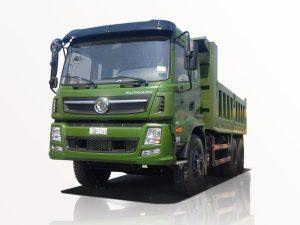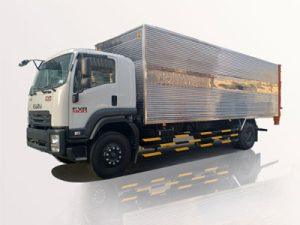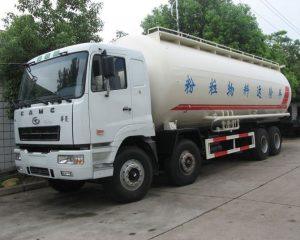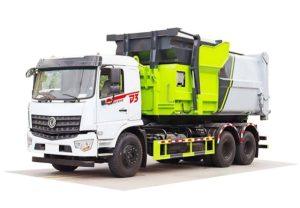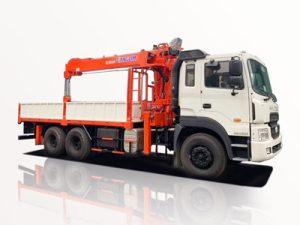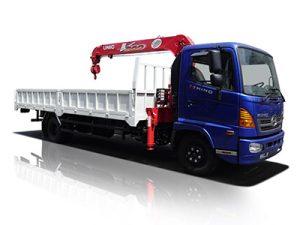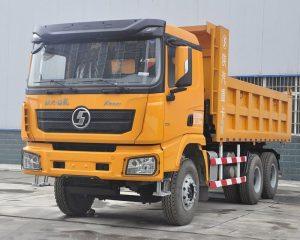Monday to Saturday - 8:00 -17:30
Hydraulic Garbage Compactor: Maximizing Waste Management Efficiency
Introduction
In the realm of waste management, a hydraulic garbage compactor has become an essential tool for municipalities and private businesses alike. These machines enable the efficient compression of waste, reducing its volume and allowing for more effective disposal. As urban areas grow and waste production increases, the significance of hydraulic compactors cannot be overstated. This article delves deeply into the mechanics, applications, benefits, and best practices associated with hydraulic garbage compactors.
What is a Hydraulic Garbage Compactor?
A hydraulic garbage compactor is a specialized machine that uses hydraulic power to compress waste materials into a compact form. This process not only reduces the space required for waste storage but also lowers the frequency of waste pickups, thereby cutting costs for waste management operations. The design typically incorporates a hydraulic cylinder, a compaction chamber, and a control system that ensures efficient operation.
The Working Mechanism of a Hydraulic Garbage Compactor
Components of a Hydraulic Garbage Compactor
- Hydraulic Cylinder: Converts hydraulic fluid pressure into mechanical energy to apply force during compaction.
- Compaction Chamber: The area where waste is loaded and compressed.
- Control System: Manages the operation of the compactor, including the compaction cycle.
How It Works
- Waste materials are loaded into the compaction chamber.
- The hydraulic system is activated, causing the cylinder to push down on the waste.
- The waste is compressed to reduce its volume significantly.
- Once the cycle is complete, the compacted waste is removed or stored for disposal.
Types of Hydraulic Garbage Compactors
Front-Loading Compactors
Front-loading compactors are typically used in commercial applications where the waste is loaded from the front. They are ideal for restaurants and grocery stores that generate large volumes of waste.
Self-Contained Compactors
Self-contained compactors are designed for applications where waste can produce leachate, such as food waste. They include a storage tank that prevents fluids from leaking out, making them ideal for urban environments.
Stationary Compactors
Stationary compactors are often used in large-scale waste facilities. They are fixed in one location and connected to a compaction chamber where waste is brought for processing.
Benefits of Using a Hydraulic Garbage Compactor
Space Optimization
One of the primary advantages of a hydraulic garbage compactor is its ability to significantly reduce the volume of waste. This results in better utilization of storage space, allowing businesses to store more garbage without needing additional containers.
Cost Efficiency
By compressing waste, the frequency of pickups can be reduced, leading to lower transportation costs and labor expenses. Long-term, this translates to considerable savings for municipalities and businesses.
Environment-Friendly
Less frequent waste collection means fewer trucks on the road, resulting in reduced greenhouse gas emissions. Additionally, compacted waste is more efficient to recycle, which contributes to better environmental practices.
Improved Safety
With a hydraulic garbage compactor, waste is kept securely contained, which reduces the risk of spillage and accidents. This is particularly crucial in urban areas where safety standards must be upheld.
Applications of Hydraulic Garbage Compactors
Commercial Use
In commercial settings such as restaurants, supermarkets, and retail stores, hydraulic compactors help manage the substantial waste generated daily. They provide an efficient solution for businesses that need to comply with waste disposal regulations.
Residential Use
In residential areas, particularly in multi-family housing units, hydraulic compactors streamline waste disposal for residents. By accommodating larger quantities of waste, they minimize overflow and unsightly waste accumulation.
Industrial Use
Factories and manufacturing plants often generate significant amounts of waste. Implementing hydraulic garbage compactors can facilitate easier waste handling, allowing for the safe and efficient disposal of hazardous materials.
Practical Tips for Operating a Hydraulic Garbage Compactor
Regular Maintenance
To ensure optimal performance, regular maintenance of the hydraulic system is crucial. This includes checking fluid levels, inspecting hydraulic hoses for leaks, and ensuring all mechanical components are functioning properly.
Training for Operators
Proper training for operators is essential to maximize the efficiency and safety of the hydraulic compactor. Operators should be aware of the specific functionalities of the machine and emergency protocols.
Monitoring Waste Types
Different types of waste require different handling processes. Operators should be trained to identify recyclable materials and manage them appropriately to ensure compliance with local regulations.
Utilizing the Compactor Correctly
Operators must ensure that the waste is evenly distributed in the compaction chamber to avoid damage to the machine and ensure effective compaction.
Common Problems and Solutions
Hydraulic Leaks
If a hydraulic garbage compactor experiences leaks, this can indicate a problem with the hydraulic system. Regular inspections can help identify leaks early, and prompt repairs should be undertaken.
Clogs in the Compacter
Accumulation of non-compostable items can cause clogs. It is essential to educate users on what can and cannot be compacted, minimizing the risk of blockages.
Operational Failures
If the compactor does not operate as expected, checking the control system and power supply should be the first step. Often, a simple reset or recalibration can resolve minor operational issues.
Cost Considerations for Hydraulic Garbage Compactors
Initial Investment
The cost of acquiring a hydraulic garbage compactor can vary significantly based on type and capacity. Businesses should consider projected long-term savings when evaluating the upfront costs.
Maintenance Costs
Regular maintenance and repairs are vital to ensure efficiency. Businesses should budget for these costs as part of their total waste management strategy.
Return on Investment (ROI)
Tracking waste management costs before and after implementing a hydraulic compactor can provide insight into the ROI. A decrease in waste collection frequency and improved storage capacity typically suggest a favorable ROI.
Environmental Impact of Hydraulic Garbage Compactors
Reducing Landfill Contributions
By compressing waste, less overall volume is sent to landfills. This contributes to a decrease in landfill overflow, reducing the environmental impact of waste disposal.
Enhanced Recycling Processes
Hydraulic compactors facilitate the separation and storage of recyclable materials, thereby improving recycling rates and enhancing the overall efficiency of waste processing facilities.
Lowered Carbon Footprint
Less frequent waste collection means fewer emissions generated by collection trucks. The overall reduction in vehicle usage contributes positively to the environment.
FAQ Section
1. What types of waste can be compressed using a hydraulic garbage compactor?
Hydraulic garbage compactors are suitable for compressing a variety of waste types, including municipal solid waste, cardboard, plastic, and other recyclables, although hazardous waste must be handled separately.
2. How often should hydraulic garbage compactors be maintained?
Regular maintenance should be conducted at least once a year, but more frequent checks are recommended for busy operations. Daily inspections before operation can also help identify issues early.
3. Can hydraulic garbage compactors be used in residential areas?
Yes, hydraulic garbage compactors can be effectively used in residential areas, especially in multi-family units to streamline waste collection and disposal processes.
4. What are the energy requirements for hydraulic garbage compactors?
The energy requirements vary based on the compactor model and its capacity. It’s essential to consult the manufacturer’s specifications to understand the power needs of a specific unit.
5. Are hydraulic garbage compactors environmentally friendly?
Yes, by reducing the volume of waste and minimizing collection frequency, hydraulic garbage compactors help decrease greenhouse gas emissions and landfill contributions, making them an environmentally friendly choice.
6. How can I choose the right hydraulic garbage compactor for my needs?
Consider factors such as the volume and type of waste generated, space availability, budget constraints, and operational requirements. Consulting with a waste management expert can also help make an informed decision.


